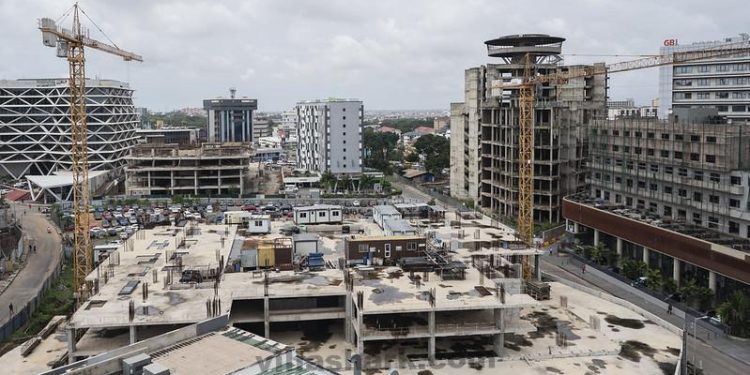Ghana’s Construction Sector to Expand Moderately at 3.6% Over Medium-to-Long Term
Fitch Solutions has projected an average real growth rate of 3.6% for Ghana’s construction industry between 2027 and 2034, as macroeconomic conditions stabilise and external trade uncertainties ease.
The forecast reflects a moderation in growth compared to the robust short-term outlook. The construction sector is expected to expand by 7.6% in 2025 and 6.9% in 2026, supported by a rebound in public infrastructure investment and buoyant real estate activity.
“Our projections indicate a deceleration to an average growth rate of 4% year-on-year through the end of our forecast period in 2034. Despite the slower growth compared to the short term, we recognise the expanding scale of the construction industry,” Fitch stated.
According to the report, the construction industry is on a recovery trajectory following severe contractions in 2022 and 2023, during which the sector declined by 6.8% and 11.2% respectively. The downturn was driven by macroeconomic instability, high inflation, and reduced capital spending under the IMF-supported fiscal adjustment programme.
Fitch notes that 2024 marked a turning point for the sector recording 9.6% real growth. According to Fitch Solutions, the recovery is being underpinned by a 39.2% year-on-year surge in capital expenditure, largely fuelled by pre-election infrastructure spending and improved fiscal conditions.
Key drivers of the medium- to long-term outlook include steady demand for residential and commercial developments in urban centres such as Accra and Kumasi, supported by continued urbanisation.
Ghana’s urban population is projected to grow by 2.7% annually, with urban dwellers expected to make up 65.5% of the total population by 2034, up from 59.8% in 2024.
While the projected medium-term growth remains moderate, Fitch highlights the potential for the construction sector to play a central role in Ghana’s long-term economic transformation if structural reforms, public-private partnerships, and infrastructure financing frameworks are effectively scaled.








